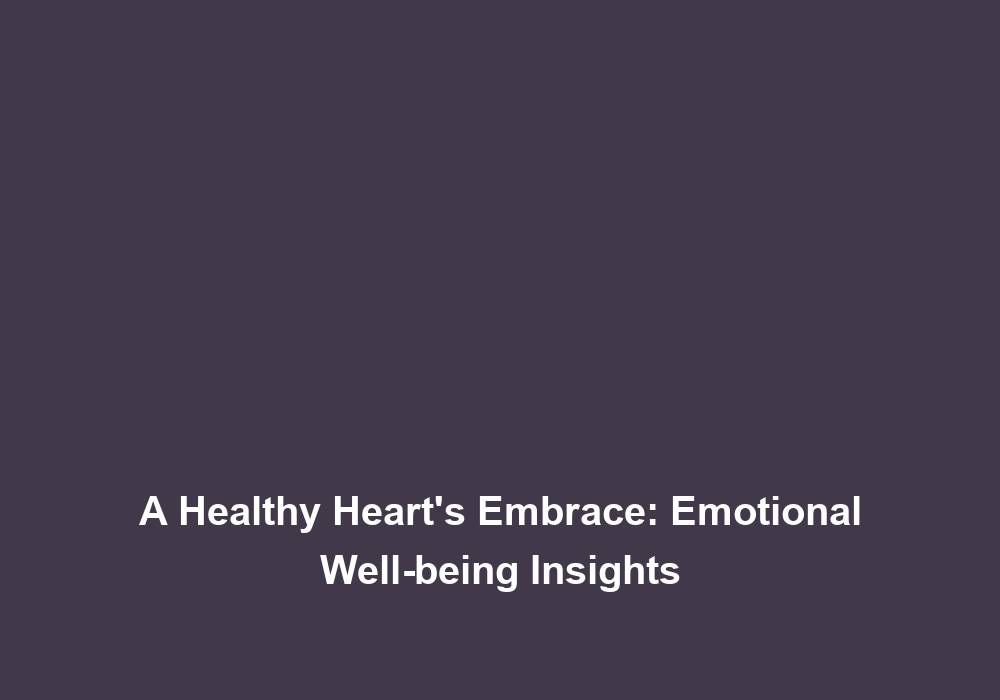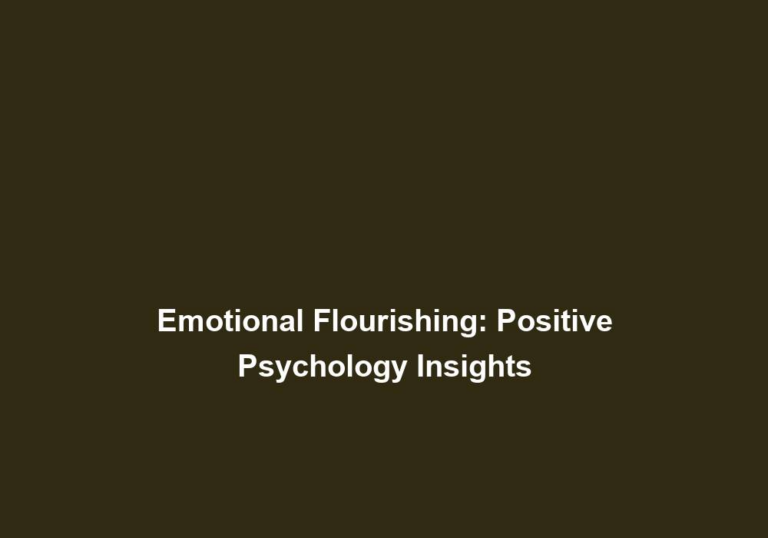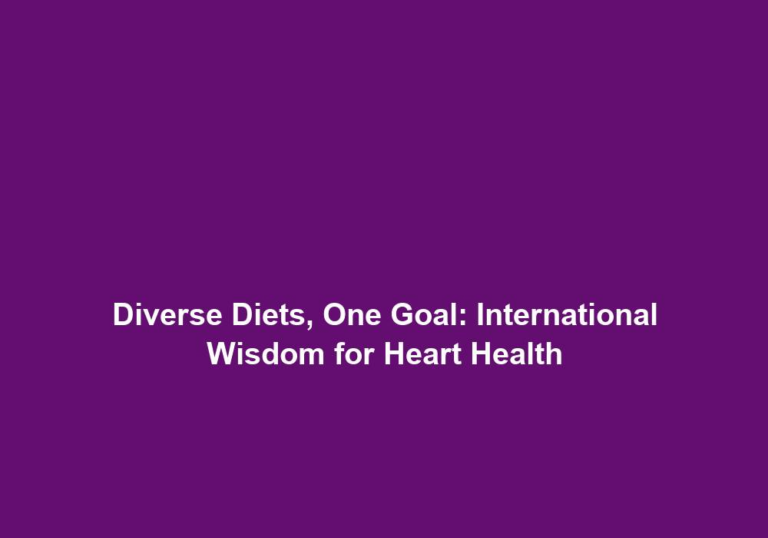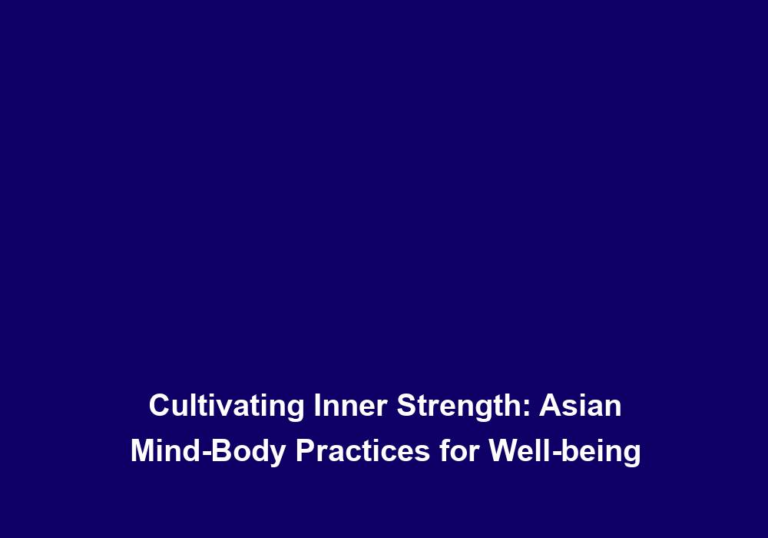A Healthy Heart’s Embrace: Emotional Well-being Insights
Emotional well-being plays a vital role in maintaining a healthy heart and overall well-being. It is widely recognized that our emotions have a direct impact on our physical health, and nurturing a positive emotional state can significantly enhance heart health. In this article, we will explore the importance of emotional well-being and provide valuable insights on how to achieve and maintain it.
Understanding the Connection between Emotional Well-being and Heart Health
Numerous studies have shown a strong correlation between emotional well-being and heart health. When we experience negative emotions, such as stress, anger, or sadness, our bodies release stress hormones like cortisol and adrenaline. These hormones can increase heart rate, blood pressure, and cholesterol levels, putting a strain on the cardiovascular system. On the other hand, positive emotions, such as happiness, love, and gratitude, can have a profound impact on our heart health. Research has found that individuals who maintain a positive emotional state tend to have lower blood pressure, reduced inflammation, and improved overall cardiovascular health.
To further understand this connection, let’s delve into the strategies that can help enhance emotional well-being and contribute to a healthier heart.
Strategies for Enhancing Emotional Well-being
Now that we understand the importance of emotional well-being for heart health, let’s explore some effective strategies that can help us achieve and maintain it.
1. Practice Mindfulness and Meditation
Engaging in mindfulness and meditation practices can significantly improve emotional well-being. These practices involve focusing on the present moment, cultivating awareness, and letting go of negative thoughts and emotions. By incorporating mindfulness and meditation into our daily routine, we can reduce stress, enhance self-awareness, and foster a positive emotional state.
Some ways to practice mindfulness and meditation include:
- Setting aside dedicated time each day for meditation, even if it’s just a few minutes.
- Utilizing mindfulness apps or guided meditation recordings to assist in the process.
- Engaging in mindful activities such as walking, eating, or even washing dishes, where you focus on each sensation and experience.
By making mindfulness and meditation a part of our daily lives, we can cultivate emotional well-being and support a healthier heart.
2. Prioritize Self-Care
Taking care of ourselves is crucial for emotional well-being. This involves not only focusing on our physical health but also nurturing our mental and emotional well-being. To prioritize self-care, we can:
- Ensure we get enough sleep, as lack of sleep can contribute to stress and negatively impact our emotions.
- Maintain a balanced diet, incorporating nutrient-rich foods that support brain health and emotional balance.
- Engage in regular physical activity, as exercise releases endorphins that promote a positive mood.
- Carve out time for activities that bring joy and relaxation, such as hobbies, spending time in nature, or connecting with loved ones.
By prioritizing self-care, we recharge ourselves, reduce stress levels, and cultivate a healthy emotional state, which in turn supports our heart health.
3. Nurture Relationships and Social Connections
Building and maintaining healthy relationships is essential for emotional well-being. Connecting with loved ones, friends, and community members provides a sense of belonging, support, and fulfillment. To nurture relationships and social connections, we can:
- Engage in meaningful conversations with loved ones, sharing our thoughts, feelings, and experiences.
- Spend quality time together, participating in activities that promote bonding and create positive memories.
- Express gratitude and appreciation for the people in our lives, fostering a positive emotional connection.
By investing in our relationships and social connections, we create a support system that contributes to our emotional well-being and ultimately benefits our heart health.
4. Seek Professional Help if Needed
Sometimes, achieving emotional well-being requires professional assistance. If you find yourself struggling with persistent negative emotions, anxiety, or depression, it is crucial to seek help from a mental health professional. They can provide guidance, support, and therapeutic interventions to help you navigate through challenging emotions and develop healthy coping mechanisms. Don’t hesitate to reach out for help when needed, as it is a sign of strength and a proactive step towards emotional well-being and heart health.
5. Practice Gratitude and Positive Thinking
Cultivating a mindset of gratitude and positive thinking can have a profound impact on emotional well-being. Taking time each day to reflect on the things we are grateful for helps shift our focus from negativity to positivity. By consciously choosing to see the good in every situation and practicing positive self-talk, we can rewire our brains to adopt an optimistic outlook and foster emotional well-being.
Some ways to practice gratitude and positive thinking include:
- Keeping a gratitude journal, where you write down things you are thankful for each day.
- Taking a few moments to appreciate the small joys and positive experiences in your life.
- Challenging negative thoughts and replacing them with positive affirmations.
By incorporating gratitude and positive thinking into our daily lives, we can create a mindset that supports emotional well-being and contributes to a healthier heart.
Conclusion
Emotional well-being is a crucial aspect of maintaining a healthy heart and overall well-being. By understanding the connection between our emotions and heart health, we can take proactive steps to enhance emotional well-being. Through practices like mindfulness, self-care, nurturing relationships, seeking professional help when needed, and cultivating gratitude and positive thinking, we can create a solid foundation for a healthy heart’s embrace. Prioritizing emotional well-being not only benefits our cardiovascular health but also enhances our overall quality of life. So let’s embrace emotional well-being and take care of our hearts for a healthier and happier life.







